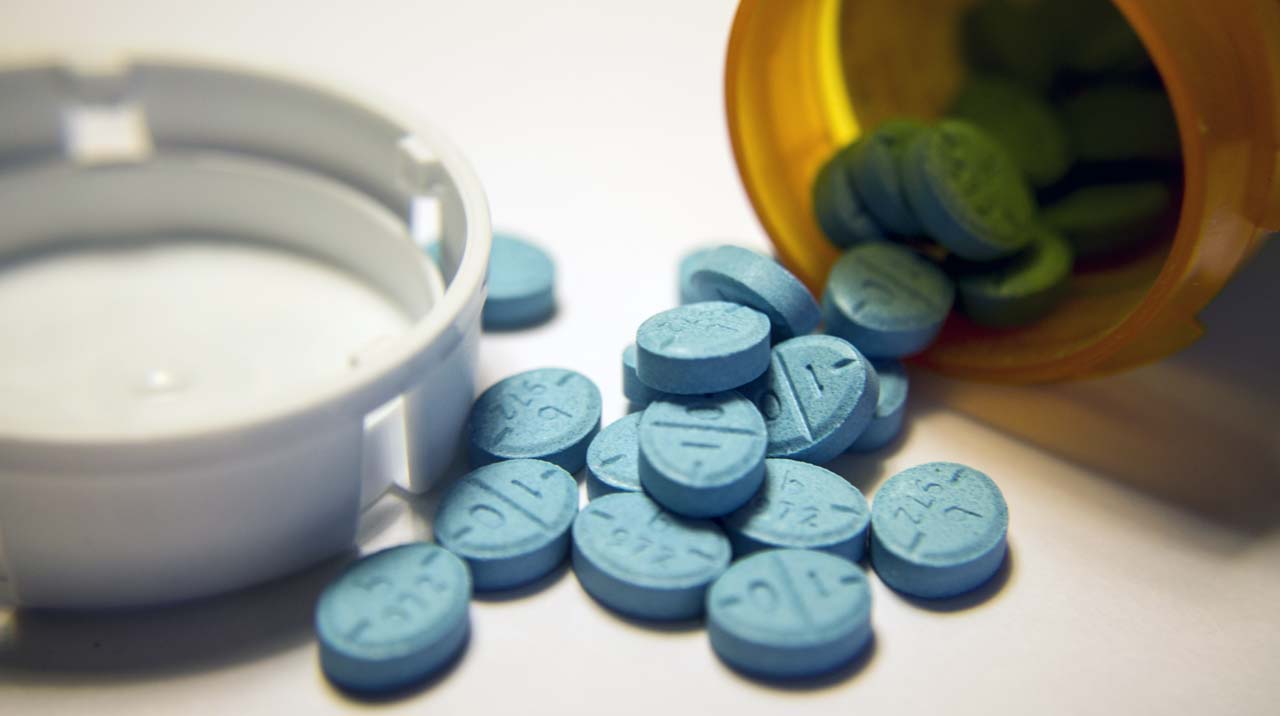What is Adderall?
Adderall is a common prescription central nervous system stimulant, a category that also includes Ritalin, Concerta, and Dexedrine. It works by increasing central nervous system activity through two of our brain chemicals: norepinephrine and dopamine.
These chemicals impact feelings of reward and important bodily functions, including heart rate. In proper application, taking Adderall can boost our energy levels, improve our focus, and decrease our feelings of restlessness.
But for every positive that comes with Adderall use, there is a corresponding negative. In both medical and illicit settings, many medical professionals consider Adderall a high-risk medication with the potential for abuse and addiction.
Prescribed Usage of Adderall
Two of the most common prescription uses of Adderall are attention deficit hyperactivity disorder and narcolepsy. ADHD is one of the most common childhood psychiatric conditions. While it typically starts in adolescence, symptoms continue into adulthood for roughly half of all patients diagnosed before age 18.
Regulated and cautious use of Adderall can help ease many ADHD symptoms, including lack of focus, restlessness, and lack of energy. But while it does have approved medical uses, prescription stimulant abuse is on the rise.
Methods of Adderall Abuse
Abuse may mean taking Adderall through an unapproved method, like crushing and snorting or injecting instead of swallowing, taking higher doses than you were prescribed, or taking someone else’s medication.
It may also mean taking Adderall to get high or to promote side effects your doctor hasn’t deemed necessary for you. Lying to your doctor about your symptoms or switching doctors to obtain a new prescription is a dangerous abuse method.
The Food and Drug Administration or FDA has not evaluated the effectiveness of Adderall for long-term use in controlled trials. They recommend periodic re-evaluation to ensure that the drug is still benefiting the patient more than it may be harming them.
Adderall Addiction Stories

Whether ours or someone else’s, we all have Adderall addiction stories. A few stories of Adderall addiction even have tragic endings. Others are more positive and give addicts in recovery hope. We’re here to remind you that your story is your own.
Drug addiction rarely gets better when it goes untreated. And though it has been labeled a study drug, misused Adderall more often gives the illusion of efficiency rather than actually making us more productive.
Since many Adderall addiction stories involve students and amphetamines or workplace Adderall abuse, we thought it would be helpful to next talk about the average age when drug abuse begins.
Age at Which Abuse Begins
Recent studies have revealed that the peak ages for beginning misuse of prescription stimulants are between ages 16 and 19. While this is when misuse begins, that does not necessarily mean that it never starts at other ages or doesn’t continue into other age groups.
As we mentioned before, about half of patients diagnosed with DHD under 18 will also experience symptoms into adulthood. Many adults continue to misuse Adderall, whether to combat symptoms or boost productivity at home or work.
Signs of Adderall Dependency
In this section, we want to focus on the behavioral and emotional signs of Adderall dependency before moving on to the physical signs. If you are concerned for yourself or a loved one, there are several signs of Adderall dependency to keep in mind. Here are a few examples:
- Becoming angry or defensive when asked about your Adderall use.
- Lying to friends or loved ones about your drug habits.
- Neglecting responsibilities and hobbies to spend more time under the influence of Adderall.
- Needing higher or more frequent doses to achieve the side effects that you want.
Side Effects of Adderall Addiction
One of the most troubling side effects of Adderall addiction is the presence of stimulant withdrawal symptoms when you try to stop taking it. In addition to presenting mental and physical health risks, withdrawal symptoms are some of the most common relapse triggers.
Some of the most common Adderall withdrawal symptoms include depression, fatigue, and sleep problems. These and other Adderall withdrawal symptoms have led many users to start taking them again to feel better.
But over time, these side effects only get worse. And continued long-term use comes with additional risks, including a higher risk of overdose. A stimulant overdose can cause severe or even fatal side effects, including heart attacks and seizures.
The Connection Between Amphetamines and Mania and Psychosis
Misuse of stimulants is associated with dangers like psychosis, heart attack, heart disease, and even sudden death. Adderall abuse can have long-term or even permanent mental and physical health consequences.
And it turns out that there may also be a direct link between Adderall and more dangerous substances.
ADHD Meds and the Meth Connection

While further research may be needed to better understand the connection, evidence shows a high prevalence of attention deficit hyperactivity disorder in adults who use meth. What this tells us is that untreated ADHD symptoms often lead to drug abuse of different kinds.
If you are battling Adderall or methamphetamine addiction, our recovery programs can help. We also offer dual diagnosis programs for those who are battling co-occurring mental health disorders. And this is not limited to attention deficit hyperactivity disorder.
Depression, anxiety disorders, post-traumatic stress disorder, and schizophrenia are some of the most common co-occurring mental health disorders. Treating addiction and mental health disorders together is crucial to recovery.
Treating one and not the other will ensure that neither truly gets better.
Treatment for Adderall Dependency Issues
Depending on the level of your addiction, withdrawal symptoms, and other needs, we offer several different treatment options for Adderall dependency issues. For example, someone with a co-occurring mental health disorder might choose a partial hospitalization program or PHP.
The in-depth care offered during a PHP can provide effective help for both substance-related and mental health symptoms. Similarly, someone with a particularly severe addiction, troubling withdrawal symptoms, or a history of relapse might choose an inpatient or residential program.
In the comfort and safety of our facility, inpatient programs offer 24-hour access to high-level care, support, and guidance. Lastly, someone with a milder addiction, limited withdrawal symptoms, and no mental health concerns might choose an intensive outpatient program.
An intensive outpatient program allows you to continue working, spending time with family, and attending to other responsibilities at home while visiting our facility for treatments each week. Generally, these require nine to 19 hours of your time each week.
Attaining long-term recovery from Adderall addictions starts with choosing the right program. We will help you evaluate your addiction and needs, choose the right program, and customize it to suit you. There are no one-size-fits-all solutions at a Best Rehabs In Arizona.
Paving Your Way at a Best Rehabs In Arizona
The road to recovery looks different for everyone. We are here to help you find your way. Call our confidential line today at 866-576-4892 to start building your customized care plan. Our addiction counselors are always on call to answer questions and guide you through the next steps.

